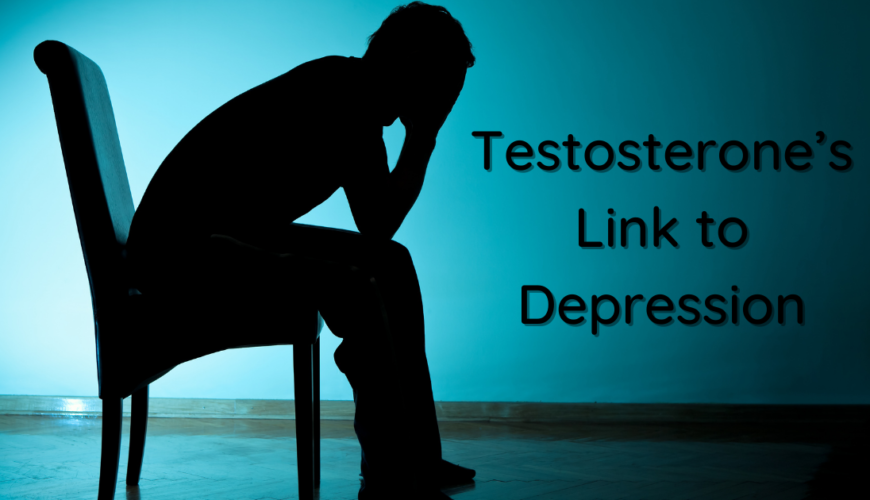In recent years, researchers have focused on the effects of testosterone deficiency, especially among men. In fact, as men age, testosterone levels drop very gradually, about 1% to 2% each year. The testes produce less testosterone as there are fewer signals from the pituitary telling the testes to make testosterone, and a protein referred to as SHBG (sex hormone binding globulin) increases with age. All of this reduces the active form of testosterone in the body. More than a third of men over age 45 may have reduced levels of testosterone than what is considered normal.
Some symptoms of testosterone deficiency include:
- Reduced body and facial hair
- Loss of muscle mass
- Low libido, impotence, small testicles, reduced sperm count and infertility
- Increased breast size
- Hot flashes
- Irritability, poor concentration and depression
- Brittle bones and an increased risk of fracture
If you experience signs of depression, you may want to check your testosterone levels
Prevalence of depression in men increases with age, posing the question of whether the age-related gradual decline in testosterone levels contributes directly to the rising rate of depression in older men. Many studies have demonstrated the improvement in depressive symptoms in hypogonadal men (a failure of the gonads, testes in men) with testosterone supplementation. The relationship between increased depressive symptoms and declining testosterone levels is complex because many conditions are independently associated with both depression and testosterone deficiency.
Primary care doctors often don’t recognize depression as a major symptom in patients with low testosterone levels as there are a myriad of other physical symptoms that may be more prevalent. Similarly, testosterone levels may not be necessarily checked when signs of clinical depression are evident. Because depression is a major risk factor for suicide and older men have the highest suicide rate of any age group in the United States, identifying conditions (such as low testosterone) that increase the risk of depression may be important for early intervention and treatment. Treatment for both clinical depression and low testosterone could improve quality of life for older men.
If You Know Someone in Crisis…
Call the National Suicide Prevention Lifeline (Lifeline) at 1-800-273-TALK (8255), or text the Crisis Text Line (text HELLO to 741741). Both services are free and available 24 hours a day, seven days a week. All calls are confidential. Contact social media outlets directly if you are concerned about a friend’s social media updates or dial 911 in an emergency.
Join a Clinical Trial with Preferred Research Partners
Preferred Research Partners in Little Rock, Arkansas is currently enrolling individuals for a clinical trial. If you or someone you know is living with low testosterone OR depression, you may qualify for one of our currently enrolling trials. Learn more to see if you qualify!

